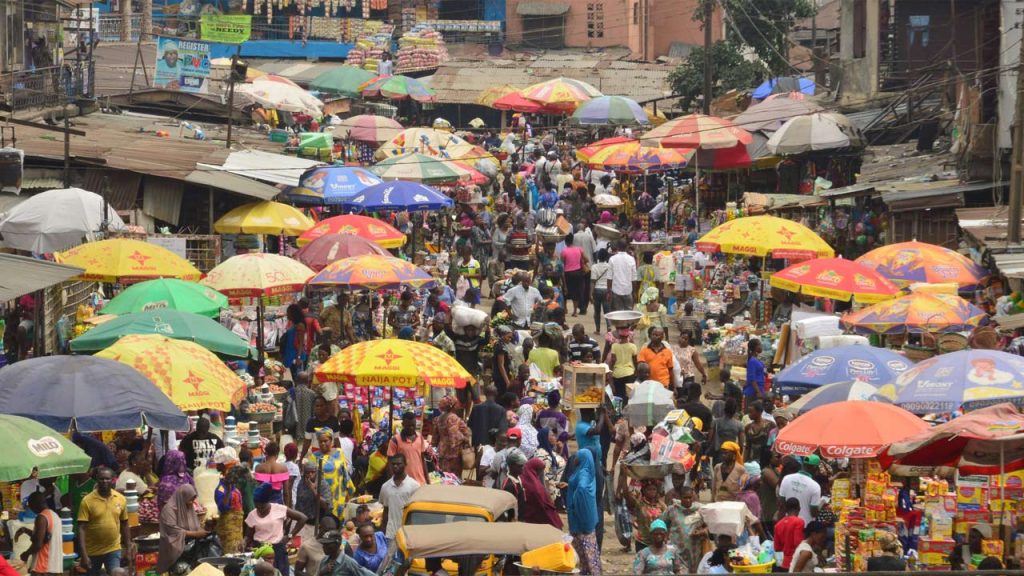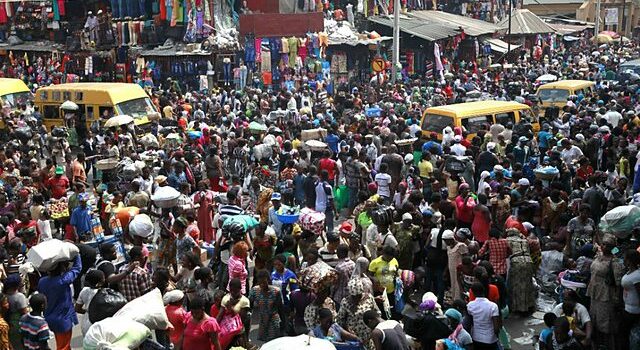Rising inflation, high interest rates, and the continued depreciation of the naira could push an additional 13 million Nigerians below the poverty line by 2025, according to a report by PricewaterhouseCoopers International Limited (PwC).
The report, titled 2025 Nigerian Budget and Economic Outlook, highlights worsening macroeconomic conditions as major drivers of poverty, exacerbating the already dire economic situation in the country.
PwC noted that macroeconomic pressure points such as rising inflation, interest rate, and naira depreciation may drive an additional 13 million people below the national poverty line by 2025.
The report shows that inflation and the cost of living remain at the forefront of economic challenges. Data from the National Bureau of Statistics (NBS) shows that Nigeria’s headline inflation rate stood at 34.8% in December 2024, reflecting the sharp increase in prices of goods and services across the country.
In an attempt to alleviate economic hardship, Nigeria raised the national minimum wage from ₦30,000 to ₦70,000. However, PwC noted the limited impact of this measure, as it only benefits about 4.1% of the population.

The vast majority of Nigerians work in the informal sector, including agriculture, small-scale enterprises, and street vending, sectors that are largely outside the scope of minimum wage policies.
“The recent increase in minimum wage only covers a small percentage of the population, highlighting its limited impact on alleviating poverty and providing financial relief to most Nigerians,” PwC said.
President Bola Tinubu, during his December 2024 media chat, emphasised his administration’s commitment to ensuring that Nigerian workers earn good and living wages. However, this sentiment has yet to translate into significant improvements for the broader population.
The president of the Manufacturers Association of Nigeria (MAN), Chief Francis Meshioye, highlighted how macroeconomic challenges have taken a toll on the manufacturing industry. High inflation, elevated interest rates, and the declining value of the naira have severely impacted the sector, further weakening economic growth and job creation.
In response to the growing poverty crisis, the Nigerian government announced plans to provide cash transfers of ₦75,000 to the country’s most impoverished citizens.
Prof. Nentawe Yilwatda, the Minister of Humanitarian Affairs and Poverty Reduction, disclosed that the initiative aims to reach 15 million households, representing approximately 70 million Nigerians, by 2025.
However, earlier attempts at poverty alleviation programmes, such as those under the National Social Investment Programme Agency (NSIPA) and the Ministry of Humanitarian Affairs and Poverty Alleviation, were suspended in January 2024 due to allegations of mismanagement and corruption.
As inflation and economic challenges persist, the risk of worsening poverty levels remains high. Without effective and transparent measures, the economic pressures on low-income and vulnerable Nigerians could deepen further in 2025.


